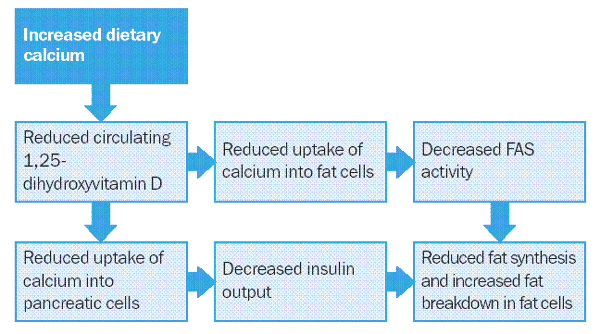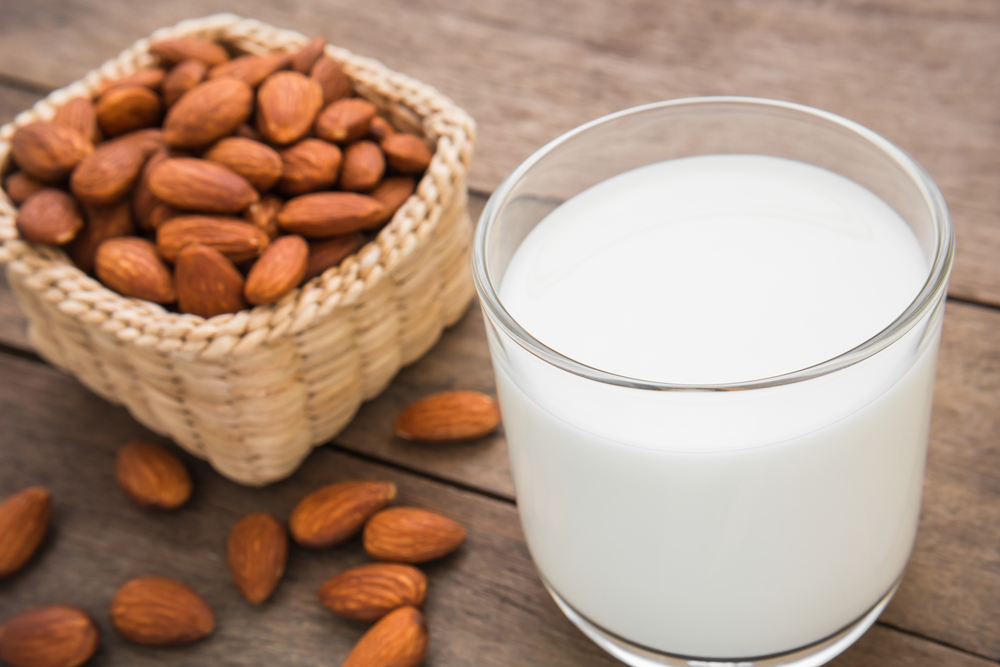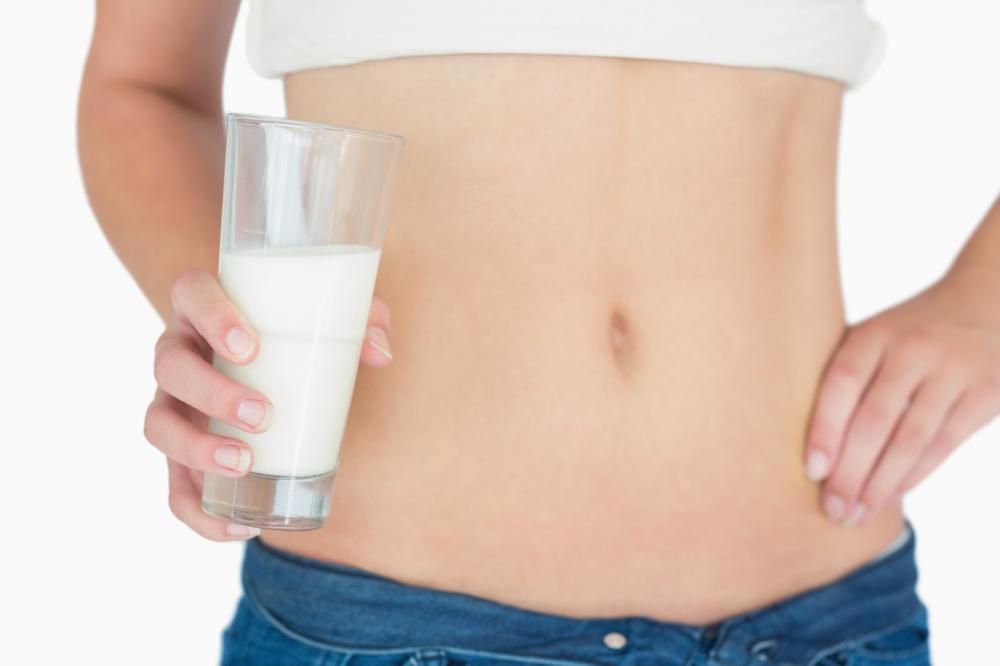New research shows that calcium — three or four daily servings of low-fat dairy products — can help adjust your body’s fat-burning machinery.
Affect of Calcium on body weight and fat?
While it’s true that 99% of the 1.2kg of calcium in the average human body goes to make up bonetissue, the remaining 1% is vitally important. Calcium is needed to switch muscles on and off – without it no muscular contraction would be possible – and is also vital to the release of neurotransmitter chemicals, such as serotonin, acetylcholine and norepinephrine. Calcium is also an important co-factor for blood clotting and activates numerous enzyme systems in the body.
A recent research has hinted at a more intriguing function of calcium in the body. Although it has long been known that all cells require calcium to function and that calcium also regulates the transport of other nutrients in and out of cells, there is growing evidence that calcium plays an important role in the regulation of energy metabolism and body composition and, in certain circumstances, may help reduce body fat andprevent weight gain. The meta-analysis of five studies showed that, the calcium-to-protein ratio of the diet was inversely linked to either body mass index (BMI) or weight change – i.e. a high calcium-to-protein ratio predicted a lower BMI or weight loss, and vice versa. In fact, a difference of 1,000mg per day of calcium intake was associated with an average difference in body weight of 8kg! The researchers found that women in the low (less than 600mg per day) calcium group had significantly higher body weight, percentage body fat, total fat mass, BMI, waist circumference and total abdominal adipose (fatty) tissue than those in the other two (medium(600-1,000mg) and high (more than 1,000mg) intake) groups.
Flow chart: the link between calcium and fat reduction

Courtesy: Calcium & Metabolism
Tips to get more Calcium in diet
- Start your day with a Calcium fortified cereal, topped with skim milk and almonds.
- Snack on low-fat string cheese or low-fat fruited yogurt.
- Top pancakes or waffles with low-fat yogurt and sliced fresh fruit instead of syrup.
- For dessert, try instant pudding made with skim milk.
- Add Calcium fortified fruit juices to your meals instead of soda.
- Top a sandwich with a slice of reduced-fat cheese.
- Mix up a fruit smoothie with low-fat frozen yogurt and skim milk.
- If milk is a problem, look for Calcium fortified soy milk and tofu.
- Add steamed broccoli to a salad and black-eyed peas.
- Use nuts, such as almonds, as snacks or to add a crunchy texture to foods.
The Food Standards Agency recommends a maximum level of calcium supplementation of 1,500mg per day, and it would seem wise not to exceed a combined food/supplement calcium intake of 2,000mg per day.
Calcium Sources
| High Calcium Foods >250mg | Moderate Calcium Foods 100 – 250mg | Low Calcium Foods <100mg |
|
|
|
*Be sure to read the food label as the above are only estimates. Ingredients and fortification may vary.

Too many dieters tend to immediately jettison dairy foods from their diet, because they’re just sure they’re going to make them fat. In fact, they’re shooting themselves in the foot, because they subject themselves to more empty-calorie sources. They would be better off if they would substitute high-fat dairy products with low-fat dairy.
Note: Caution is required when considering study results. For one thing, many of the studies conducted were not specifically designed to investigate the link between calcium and body composition; for another, there is speculation that other compounds found in dairy products may act in concert with dietary calcium to produce weight loss effects, including whey proteins, conjugated linoleic acid (CLA) and branched-chain amino acids (BCAAs).

